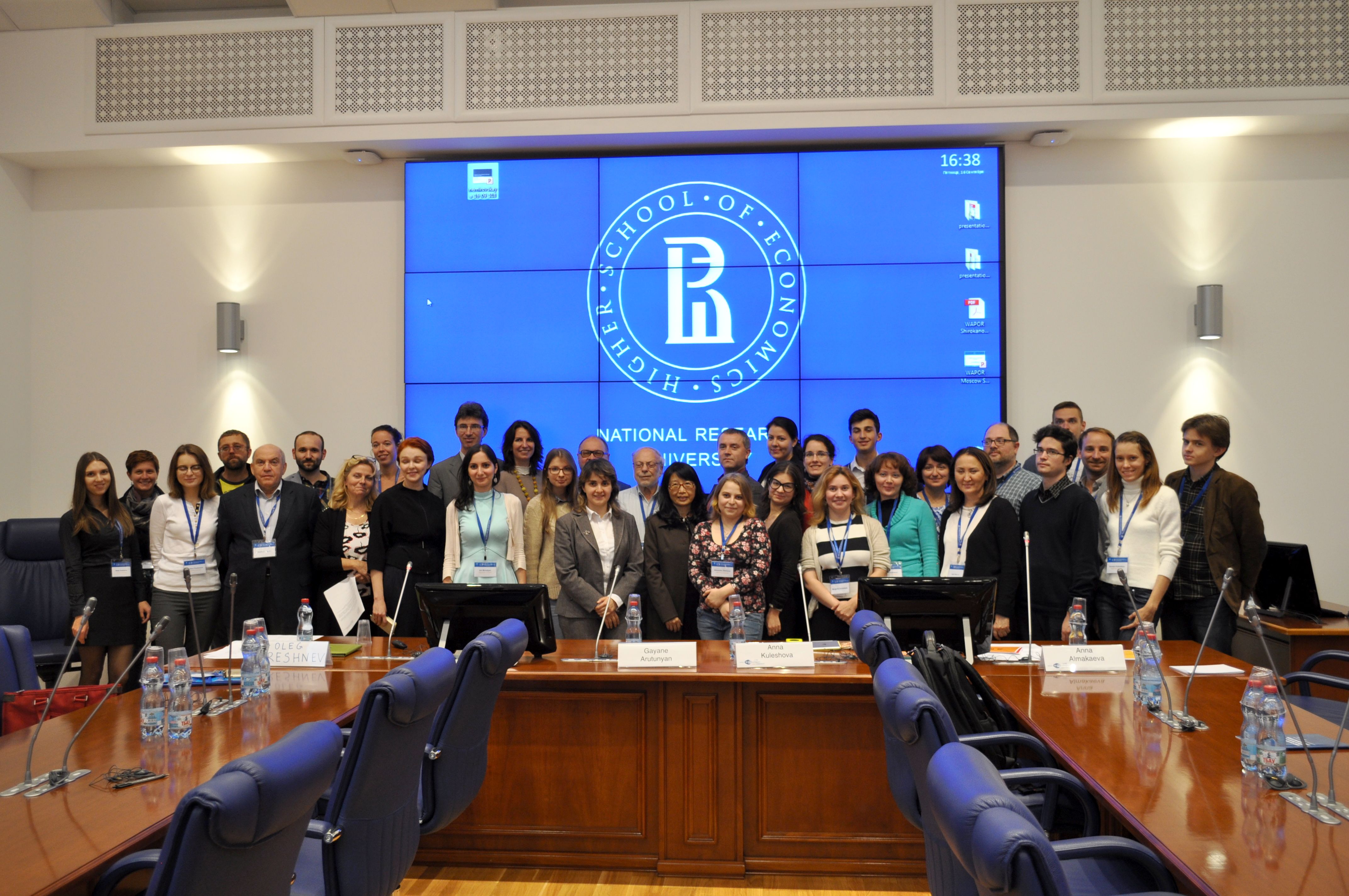Moscow Regional Conference Wrap-Up
 The WAPOR regional conference Survey Research and the Study of Social and Cultural Change took place in Moscow (Russia) from 15th till 17th of September. The conference was hosted by the Laboratory for Comparative Social Research of the National Research University Higher School of Economics. During three days about 100 researchers from 20 countries discussed mixed-mode studies, electoral behavior, new technologies in public opinion surveys, big data and cognitive analytics, problems and limitations of cross-cultural studies. Along with conference presentations pollsters from leading Russian research companies (FOM, Levada-Center, VCIOM, ZIRCON, and CESSI) discussed the possibility of establishing a WAPOR regional chapter which would unite former USSR and post-Soviet countries.
The WAPOR regional conference Survey Research and the Study of Social and Cultural Change took place in Moscow (Russia) from 15th till 17th of September. The conference was hosted by the Laboratory for Comparative Social Research of the National Research University Higher School of Economics. During three days about 100 researchers from 20 countries discussed mixed-mode studies, electoral behavior, new technologies in public opinion surveys, big data and cognitive analytics, problems and limitations of cross-cultural studies. Along with conference presentations pollsters from leading Russian research companies (FOM, Levada-Center, VCIOM, ZIRCON, and CESSI) discussed the possibility of establishing a WAPOR regional chapter which would unite former USSR and post-Soviet countries.
The sessions were engaging, thoughtful, and asked fundamental questions in survey research. The key lectures were delivered on the first day of the conference by Alexei Grazhdankin from Analytical Center of Yuri Levada, Russia on the dynamics of Russian electoral attitudes, and Eric Uslaner from University of Maryland, USA on trust, corruption, and inequality. Some of the other main sessions covered research on Russian political system, politics in Greece, corporate donations to the Bulgarian police, support for American democracy, electoral choice in modern Russia, tweets from the 2012 U.S. presidential elections, and electoral behavior in the 2016 Iranian election. The next two days included equally interesting paper sessions from topics as diverse as gender equality in the household, different variations of Islam in Turkish speaking countries, race and political participation, attitudes toward lesbians and gay men in Singapore to association between partisan selective exposure and empathy. The conference was concluded by a lecture on authoritarian notions of democracy around the globe by Christian Welzel, director of research at the World Values Survey, and concluding remarks by Eduard Ponarin, Director of the Laboratory for Comparative Social Research, and Patricia Moy, President, WAPOR.


